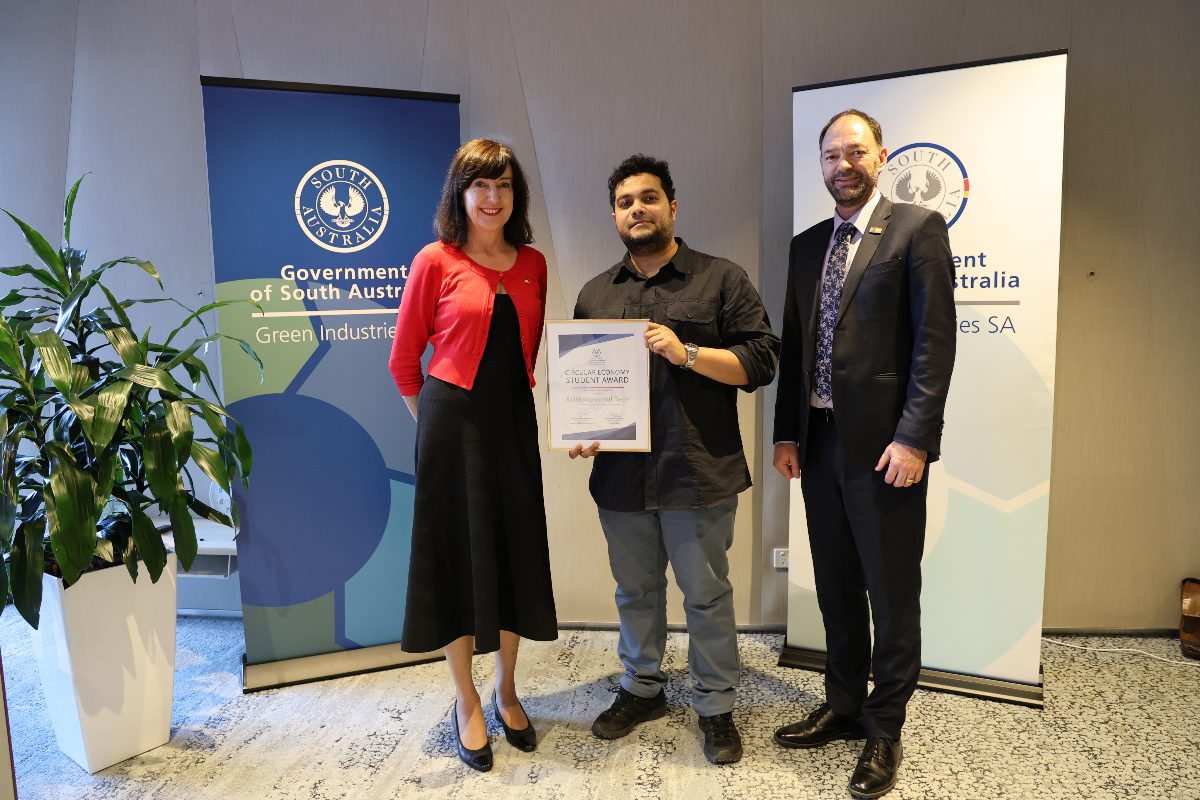
Flinders University PhD AHM Mohsinul Reza, from the College of Science and Engineering, has been awarded a State Government Circular Economy Student Award.
The annual Green Industries SA awards, presented last month by Dr Susan Close – Deputy Premier and Minister for Climate, Environment and Water – recognises innovative research among honours and postgraduate students who are working to develop realistic solutions for accelerating the State’s transition to a circular economy.
Supervised by Professors Jian Qin and Youhong Tang, Dr Reza’s Flinders project focuses on developing a novel method for quick identification and optimisation of the lipid production conditions in microalgae.
Algal lipid is a promising biofuel feedstock for green energy production and as a healthy bioactive compound in human diet.
Compared to terrestrial plants, oil production from microalgae is essentially a carbon-neutral process. Algal ponds also have the advantage of acting as carbon sinks that can capture greenhouse gas emissions.
Additionally, it can produce various byproducts that benefit human health, and use the resources such as wastewater and marine ecosystems in Australia.
The industrial success of microalgal lipid production greatly relies on harvesting algae during maximal lipid synthesis, so the Flinders project is working on a rapid and easy lipid analytical tool to achieve maximal lipid production.
This study aims to enhance the lipid accumulation in microalgae in minimal time by identifying the lipid biogenesis conditions, and the stressors that trigger principal metabolic steps for the lipid synthesis, Dr Reza says.
“As a novel approach, we have used two novel aggregation-induced emission luminogen (AIEgen) bioprobes for locating lipids in microalgae,” he says.
“In addition, hydrogen peroxide (H2O2) has been studied as a messenger molecule and stress biomarker with a H2O2-specific AIEgen probe during lipid synthesis.
“Rapid and early detection of lipid drops and H2O2 in the algal cells enabled us to develop a lipid induction strategy without sacrificing the growth of microalgae.”
This new lipid and hydrogen peroxide labelling technique can be used to rapidly identify the maximum lipid-producing microalgal strains and their growing conditions.
“Therefore, the knowledge from this study will provide a crucial link to accelerating the development of microalgae as biofactory to produce sustainable food and green energy.”
Professor Youhong Tang has joined international researchers in publishing a new ACS Nano review article about the usefulness of AIEgens in the fields of life and health as a family of new materials with multifaceted functionalities. Read more here.

